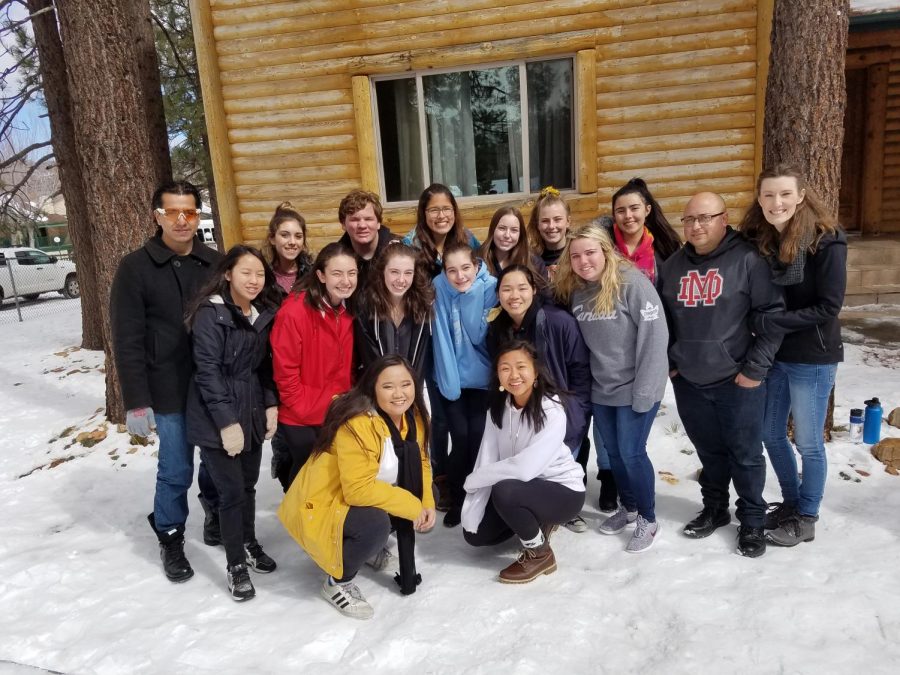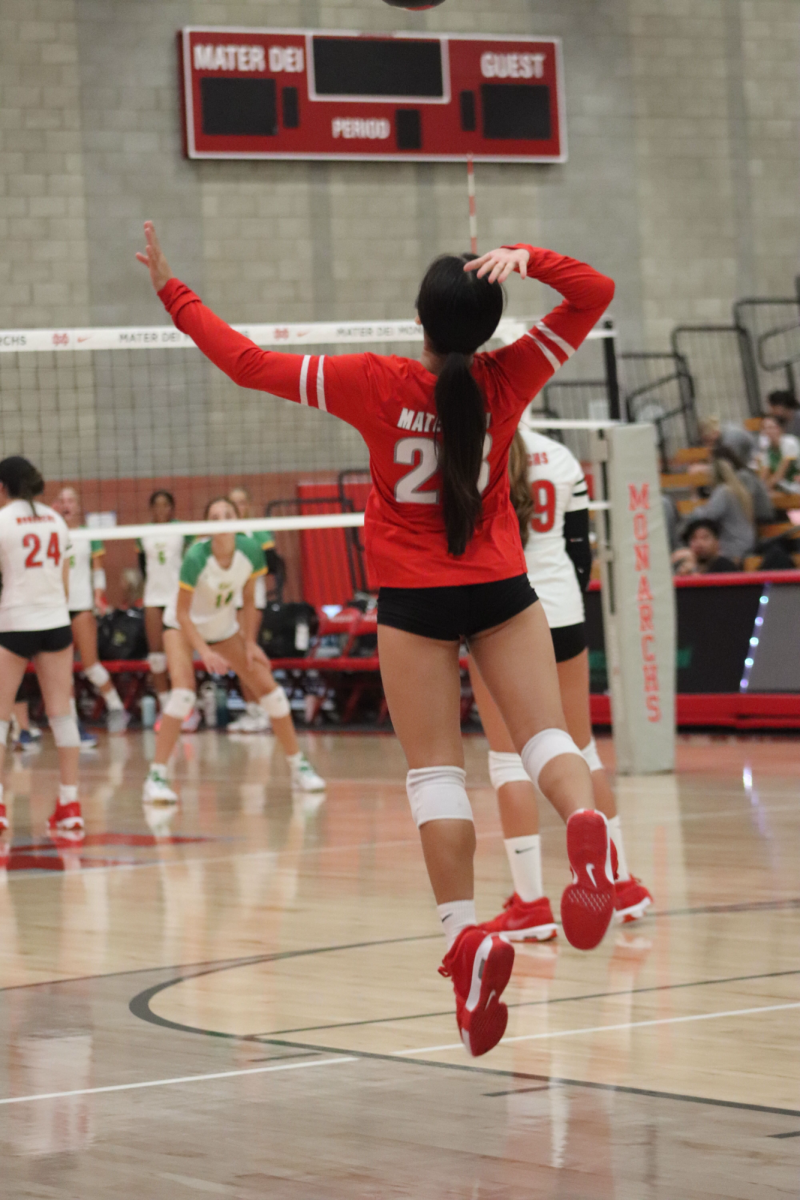ASL students spend a weekend in silence, learn about the deaf community
March 11, 2019
After arriving at Big Bear Lake and settling into their cabins, a large chatty group of teenagers lets out one loud scream in unison and then, silence – Silent Weekend has begun.
Students in the American Sign Language (ASL) course travelled to Big Bear during the weekend of Feb. 16 to attend the annual Silent Weekend, during which more than 50 students and other attendees from around Orange County choose not to speak for two days and can only communicate through ASL.
According to Mater Dei’s ASL teacher Jennifer Battaglia, one of the event’s founders, this was the sixth year that her students attended the trip. Battaglia first started this tradition when she was a teacher at Rosary High School for two years.
Although the event’s Big Bear location does not have any particular meaning, Battaglia and two of her friends who are also ASL teachers who started the event “wanted a location that wasn’t too far away and would have many activities for our students to do,” Battaglia said.
“A couple years ago we found out that Big Bear High School also has an ASL program so we’ve been able to meet up with some of those students for all of the students to meet and use their ASL skills,” Battaglia said.
Throughout the weekend, the students and chaperones are split into teams in order to engage in various games and “icebreakers.” As they play, each group earns points. The overall points are tracked each time a team wins a competition and the team with the most points gained from the different games wins the spirit award. The teacher of that group then gets to display the award in his or her classroom until the next year’s Silent Weekend.
Battaglia said that attending the trip has a lifelong influence on her students. The trip allows students to create new friendships with people from other schools, but it also serves a greater purpose: to educate students about what deaf people experience on an everyday basis.
For example, Battaglia said that, during one of the trips, a student ordered two scoops of ice cream, but the server made a mistake of only giving one. When the student attempted to notify the server of her mistake, the worker “then yelled at her that she wasn’t done and ripped the bowl from her hand,” Battaglia said. “The woman turned her back to the student and says ‘dumb deaf girl,’ thinking that the student really was deaf. The student left the store crying.”
“[Students who attend] get to briefly experience what it is like to be deaf in a world that is made for hearing people,” Battaglia said.
Senior Juliet Vo said she comes back every year because there is no other event or place where she has experienced such a tolerant environment.
“No one is judgmental of skill level; everyone is there to learn and grow,” Vo said. “It’s always a really open, accepting group where I feel welcomed.”
According to senior Angeline Phu, every time she attends Silent Weekend, she is reminded of the sense of “intersectional connection” in the ASL community.
“Silent Weekend is comparable to any retreat or trip with friends – it’s to disconnect from the everyday woes of school and life to gain reprieve with like-minded people,” said Phu, who has attended the trip all four years. “The web of love and respect is something I look fondly on and look forward to whenever I am anticipating Silent Weekend.”
Phu said she doesn’t “feel any differently about deaf people after going on this trip” because “they are just people.”
“There are no need for barriers between ‘us’ and ‘them’ – I cannot look at deaf people and label them as ‘other’ and announce ‘what I learned about them’ because they are just people,” Phu said. “…they just happen to not be able to hear … deaf is their identity, but it is not their identifying quality.”
But because many do not know how to interact with the deaf community, Battaglia said her main goal with the many activities and projects she offers her students are in order for them to understand and sympathize with deaf people and their experiences. Battaglia, however, does not necessarily want her students to feel sorry for or pity the deaf community.
“I want my students to use the frustrations and anger they felt to encourage and empower them to be a deaf ally and help make the world a little bit of a better place,” Battaglia said. “Even if it’s just giving a hearing person correct information or standing up for a deaf person being discriminated.”







